Search
Remove Ads
Advertisement
Summary 
Loading AI-generated summary based on World History Encyclopedia articles ...
Search Results
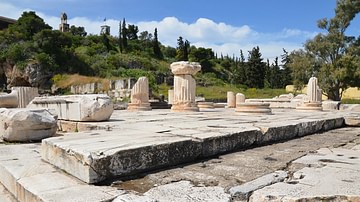
Definition
Eleusis
Eleusis was a deme of Athens and most famous for its annual festival of the Mysteries in honour of Demeter and Persephone. The site was also an important fortress protecting Attica and held several other important festivals, notably the Thesmophoria...
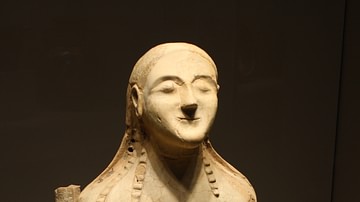
Definition
Demeter
Demeter was one of the oldest gods in the ancient Greek pantheon. Demeter was a goddess of agriculture and guaranteed the fertility of the earth. She protected both farming and vegetation. The close connection with the earth was inherited...
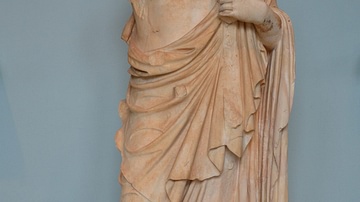
Image
Antinous as Asclepius from Eleusis
Statue of the deified Antinous represented as Asclepius, found in the outer court of the sanctuary of Demeter and Kore at Eleusis (Greece) which it apparently adorned, 2nd century CE. (Archaeological Museum of Eleusis)
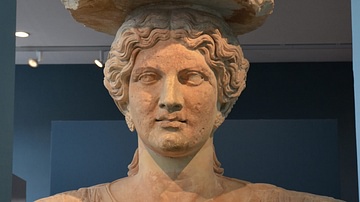
Image
Caryatid from Eleusis
The upper part of one of the caryatids that flanked the Lesser Propylaea of the sanctuary of Demeter and Kore at Eleusis. The caryatid was made in Attica in about 50 BCE. (Eleusis Museum, Greece)

Image
Greater Propylaea of Eleusis
The Greater Propylaea at the Sanctuary of Eleusis (Greece) was a monumental gate probably built by Marcus Aurelius on the same site as an earlier gate from the time of Kimon, c. 170 CE - c. 180 CE.

Image
Greater Propylaea or Gateway, Eleusis
The Greater Propylaea at the Sanctuary of Eleusis (Greece) was a monumental gate probably built by Marcus Aurelius on the same site as an earlier gate from the time of Kimon, c. 170 CE - c. 180 CE.
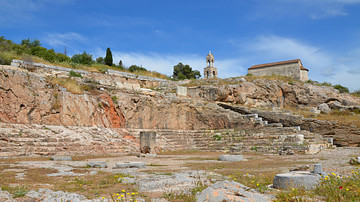
Image
Telesterion, Sanctuary of Demeter & Kore, Eleusis
The Telesterion was a large rectangular hall, probably columned, in the Sanctuary of Demeter and Kore at Eleusis (Greece). It served as the initiation Hall and Temple for the Eleusinian Mysteries. Date of construction: c. 435 BCE - 421 BCE
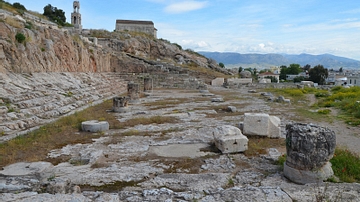
Image
The Telesterion, Eleusis
The Telesterion was a large rectangular hall, probably columned, in the Sanctuary of Demeter and Kore at Eleusis (Greece). It served as the initiation Hall and Temple for the Eleusinian Mysteries. Date of construction: c. 435 BCE - 421 BCE
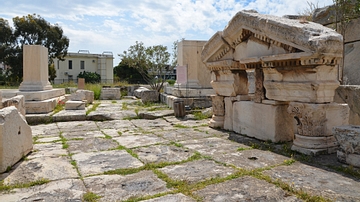
Image
Triumphal Arch, Eleusis
The ruins of the East Triumphal Arch built by Antoninus Pius in the 2nd century CE outside the Sanctuary of Demeter and Kore at Eleusis.
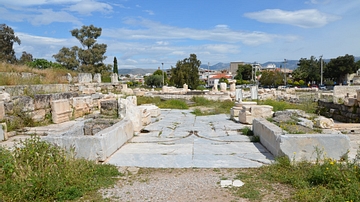
Image
Lesser Propylaea, Eleusis
The Lesser Propylaea at Eleusis (Greece) was a small gateway to the Sanctuary of Demeter and Kore built in the 1st century BCE.